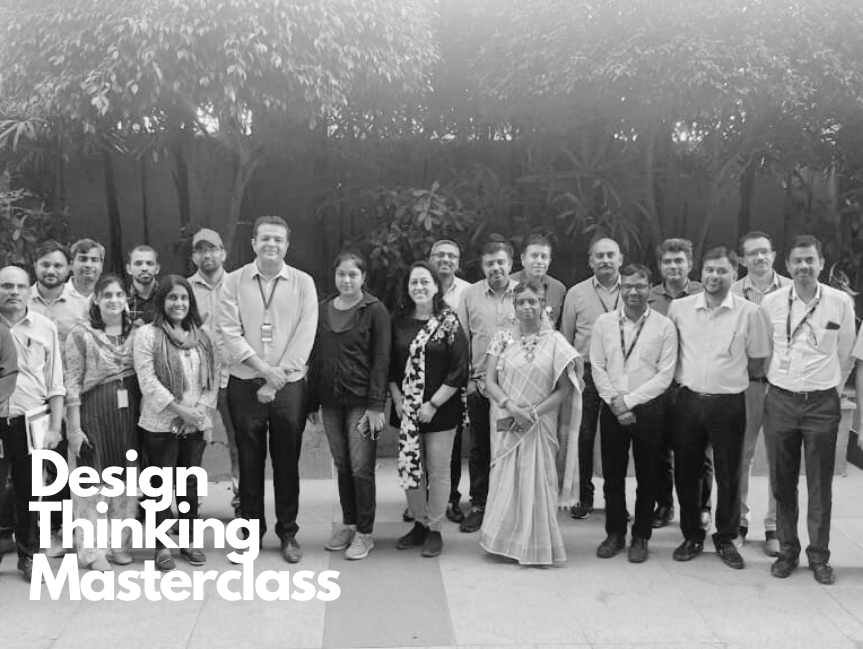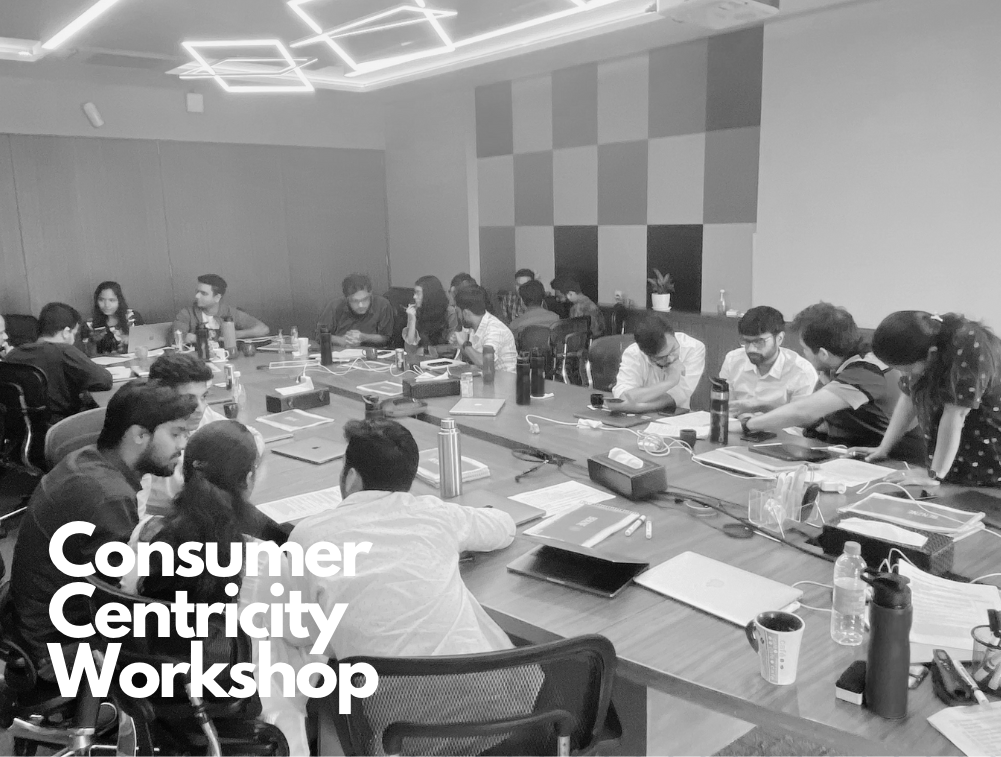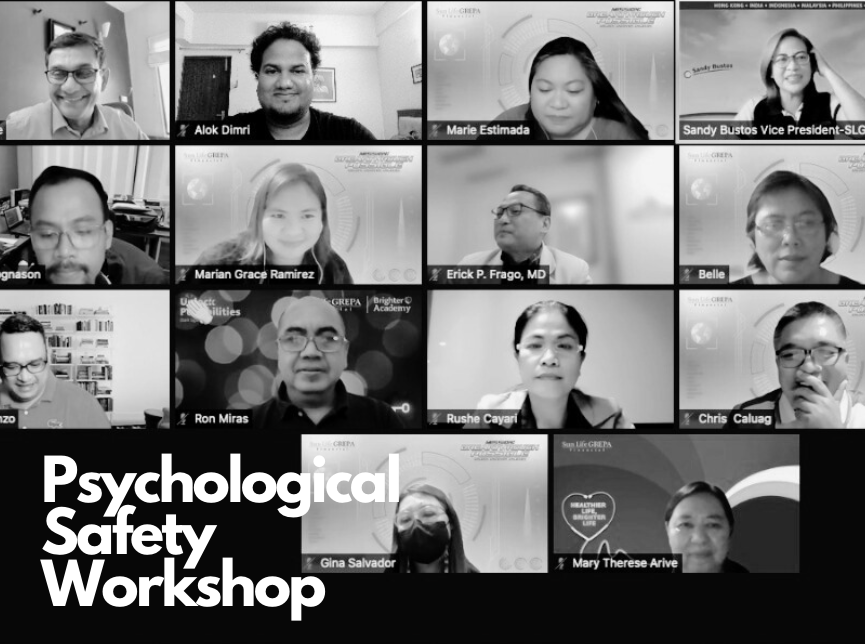Design Thinking Consulting Services: Empathy driven problem solving
Drive consumer centricity, solve wicked problems and transform your business with our human-centered design thinking consulting services.
SCHEDULE A CALLOur Credentials
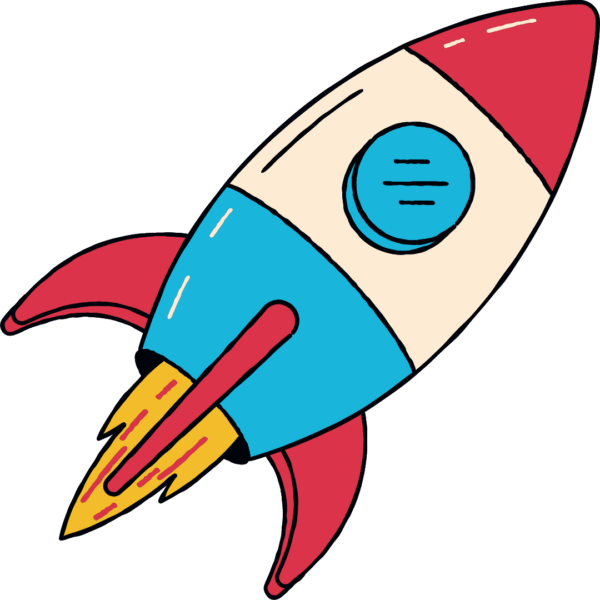
15+ Turnkey Transformation Journeys
Business Outcome led Transformation

Assessment followed by Knowing-Doing-Being framework
Contextual Time bound Consulting Approach
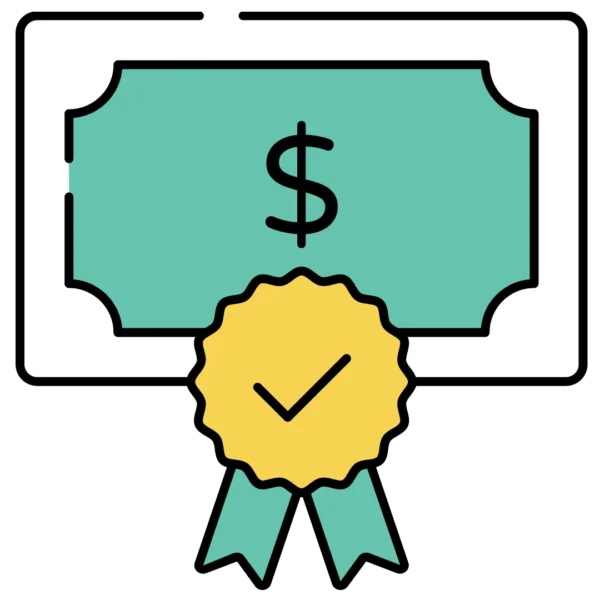
Driven by Practitioners
10000+ people trained and coached by hands-on consultants
Business Outcome Driven Design Thinking Consulting Services
Design thinking is a human-centered approach to problem-solving that prioritizes empathy, creativity, and iterative prototyping. Its importance in product development and business lies in its ability to generate innovative solutions that truly meet the needs of users while also aligning with business objectives.
Design thinking consulting services focus on customer centricity, innovation, iterative approach and cross-functional collaboration making it crucial for product development and businesses. Overall, design thinking consulting is not just a methodology but a mindset that can drive innovation, foster customer loyalty, and ultimately, drive business success in an ever-evolving market.
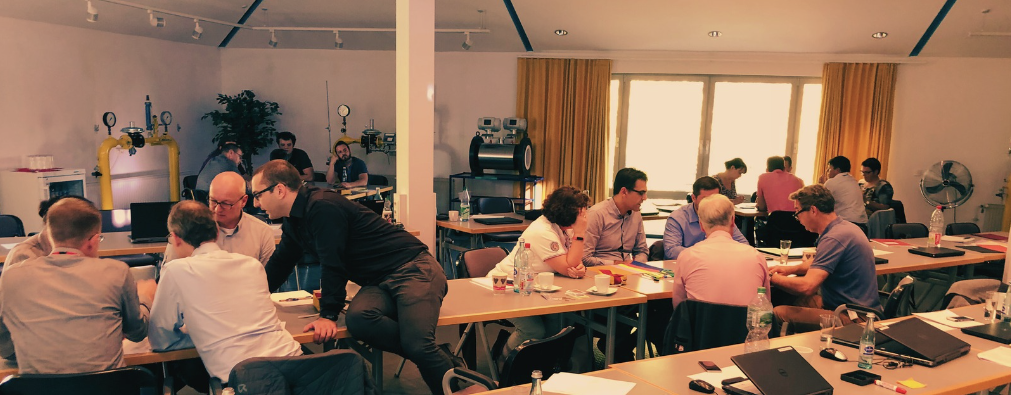
Solve wicked problems with empathy: Design Thinking Consulting
Your trusted partner in Design Thinking Consulting for a future-ready world.
Design Thinking Process
Design thinking typically follows a structured framework that involves several phases, each with its own objectives, activities, and outcomes. These phases are often iterative and non-linear, allowing teams to explore, iterate, and refine ideas as they progress through the process. The phases commonly associated with design thinking include:

Empathize
involves understanding the needs, desires, and challenges of the users or stakeholders.
Read more
It requires deep empathy and active listening to uncover insights about the user experience.
Less
Define
The team synthesizes the information gathered during the empathize phase to define the
Read more
core problem or opportunity they are addressing.
Less

Ideate
During the ideation phase, teams generate a wide range of creative ideas to address
Read more
the defined problem or opportunity.
Less
Prototype
In this phase, teams create mock-ups of their ideas to quickly test them
Read more
with users.
Less
Test
The testing phase involves gathering feedback from users by presenting them with
Read more
prototypes and observing their feedback to evaluate the effectiveness of their designs, identify areas for improvement, and refine their solutions.
Less

Implement
Once a solution has been tested and refined, it can be implemented or launched
Read more
into the real world.
Less
Start your Design Thinking journey : Discover the power of human centered design
Connect with our Design thinking consulting team today
Benefits of Design Thinking Consulting Services
Design thinking offers numerous benefits across various domains, including business, product development, education, and social innovation. Design thinking encourages human centric solutions that puts people at the center of the problem-solving process, emphasizing empathy and understanding of user needs.
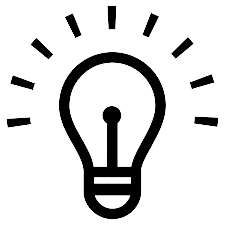
Innovation and Creativity
By encouraging a mindset of exploration, experimentation, and iteration, design thinking fosters a culture of
Read more
innovation and out-of-the-box thinking while also equipping teams with the mindset and tools to adapt to change and uncertainty.
Less

Iterative Problem-Solving
Design thinking is an iterative process that allows teams to quickly identify and address issues, leading
Read more
to more effective and efficient solutions. By testing ideas early and often with users, design thinking also helps mitigate the risk of developing products or services that fail to meet user needs or market demands.
Less

Collaboration and One Team Mindset
Design Thinking promotes collaboration across different disciplines, including design, engineering,
Read more
business, and psychology, thereby leading towards more holistic & innovative solutions.
Less
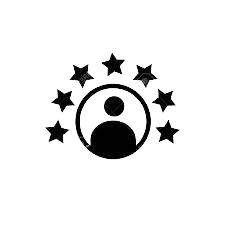
Customer Satisfaction and Loyalty
By designing products and services that are tailored to user needs and preferences, organizations
Read more
can enhance customer satisfaction and loyalty.
Less
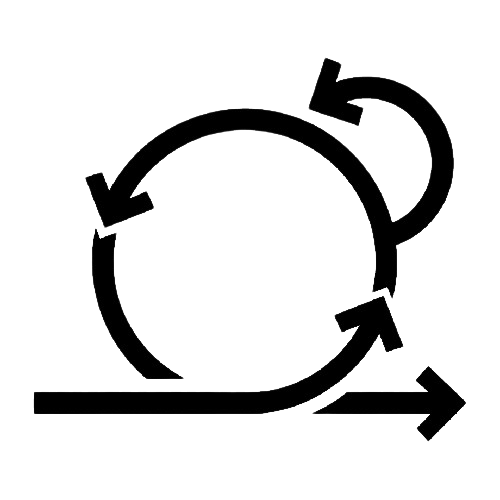
Continuous Improvement
Design Thinking encourages seeking feedback, analyzing outcomes, and reflecting on the design process,
Read more
thereby empowering teams to continuously refine their solutions and continuously improve.
Less

Competitive Advantage
Organizations that embrace design thinking gain a competitive advantage by delivering innovative,
Read more
user-centric solutions that stand out in the market.
Less
Why Choose Our Design Thinking Services?
Choosing Benzne for design thinking services offers several distinct advantages

Holistic Approach
We offer a holistic approach to design thinking that focuses on fostering a culture of innovation within the organization,
Read more
driving long-term sustainable transformation and continuous growth.
Less
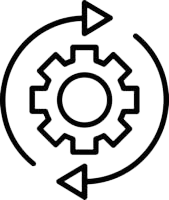
Proven Methodologies
Benzne Design Thinking consulting leverage proven methodologies and frameworks in our design thinking
Read more
services, ensuring that clients benefit from established best practices and principles.
Less

Hands-on Expertise
Benzne Design Thinking consulting team comprises experts from diverse backgrounds
Read more
with hands-on process consulting experience. This helps us to bring a range of perspectives and skill sets to tackle complex challenges effectively.
Less

User-Centric Solutions
We place a strong emphasis on understanding the needs, behaviors, and motivations of end-users, ensuring
Read more
that solutions are truly user-centric.
Less

Immersive Learning and Application
Benzne Design thinking consulting team facilitates immersive learning environment and ideation sessions
Read more
to harness the collective creativity and expertise of client teams to come up with solutions that are effective, add value and are measurable.
Less

Customized Solutions
We offer customized design thinking services tailored to the specific needs and context of each client scenario,
Read more
including their specific business problems, team structure, organizational culture, low hanging fruits and overall strategy.
Less
Design Thinking Consulting Solutions: Crafting Tomorrow, Today.
Discover the power of Design Thinking - create a sustainable innovation led organizational culture with Benzne.
Our Trusted Clients

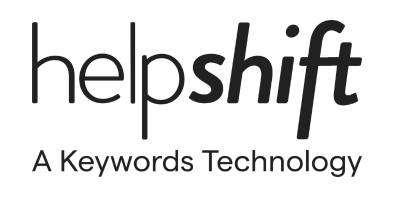
Benzne has designed and implemented turnkey transformation journeys across Fintech, Healthcare, Insurance, Semiconductors, SaaS, Non-IT, Proptech & various other IT product and services companies. Below is a snapshot of the industries and domains we have served.
Geographies We Service




Frequently Asked Questions
Understanding and Expertise of Design Thinking
Design thinking is a problem-solving methodology that prioritizes understanding the needs of users or customers, generating creative solutions, and rapidly prototyping and iterating on ideas to arrive at effective solutions. It’s characterized by empathy, collaboration, experimentation, and a focus on human-centered design.
Design thinking is crucial for businesses as it encourages customer-centric innovation, cross-functional collaboration, adaptability, enhanced user experience, creative problem-solving, and iterative approach. Overall, design thinking enables businesses to innovate more effectively, improve customer relationships, and stay competitive in a dynamic marketplace.
Design thinking consulting can benefit your organization’s product development process in several ways by:
- Encouraging user-centric approach
- Encouraging innovative solutions and out-of-the-box thinking
- Rapid prototyping and iteration process
- Reducing risk with the iterative nature of design thinking
- Promoting cross-functional collaboration
- Enhancing user experience
Integrating design thinking services into the product development process can lead to more user-centric, innovative, and successful products that drive business growth and competitiveness.
Design thinking consulting services can benefit a wide range of industries across both the private and public sectors. Some of the industries that can particularly benefit from the services of a design thinking consulting firm includes:
- Technology
- Healthcare
- Finance
- Retail
- Educational institutions
- Manufacturing
- Government agencies
- Nonprofit organizations
Ultimately, any industry that involves designing products, services, or experiences for people can benefit from design thinking consulting services. The human-centered approach of design thinking can lead to more innovative, user-centric solutions that drive business success and create a positive impact. There are various use cases around applications of Design thinking for software development, Design thinking in technology, design thinking in business analysis, design thinking in management or design thinking in business innovation and multiple such related fields.
Benzne, as one of the top design thinking consulting firms typically approach the design thinking process as below –
- Understanding the Problem: The team begins by thoroughly understanding the problem or challenge they are aiming to address.
- Defining the Problem: Once the team has a clear understanding of the problem, they define it in a way that is actionable and focused.
- Ideation: The team engages in brainstorming and idea-generation sessions to explore a wide range of possible solutions to the defined problem.
- Prototyping: The team creates rough prototypes of their ideas to bring them to life.
- Testing: The prototypes are tested with real users to gather feedback and insights.
- Iterating: Based on the feedback received during testing, the team iterates on their designs, making necessary adjustments and refinements.
Throughout the design thinking process, the team maintains a user-centric approach, prioritizing empathy, collaboration, creativity, and iteration. They work closely with stakeholders and end-users to ensure that the design thinking solution is both feasible and desirable.
As one of the best design thinking companies, Benzne’s design thinking consulting services stand out in the industry for several key reasons:
- Integrated Agile Approach: We seamlessly integrate design thinking principles with agile methodologies, creating a unique approach that enables rapid innovation and iterative development.
- Cross-Functional Expertise: Benzne’s team comprises experts from diverse backgrounds which enables us to tackle complex problems from multiple perspectives and deliver comprehensive solutions.
- Focus on Organizational Transformation: We go beyond individual projects to drive design thinking transformation within organizations.
- Proven Track Record: With years of experience in the industry, Benzne has a proven track record of success.
- Customized Training and Workshops: Benzne offers customized training and workshops tailored to the specific needs of each client.
Overall, Benzne enables organizations to achieve excellence through design thinking and business innovation, which sets us apart from others in the industry.
We tailor our design thinking services to meet the unique needs of each client by involving several key steps:
- Begin by conducting an in-depth initial assessment of the client’s goals, challenges, and existing processes.
- Based on the assessment, we tailor the design thinking approach to fit the specific context and requirements of the client.
- Involving the client in the planning process to ensure alignment and buy-in.
- Determine the most appropriate engagement model based on the client’s preferences and constraints.
- Assemble a multidisciplinary team with the right mix of skills and expertise.
- Flexibility and Iteration throughout the engagement to remain aligned with the client’s evolving needs and priorities.
- Encouraging a culture of continuous learning and improvement within the team.
- Define clear, measurable outcomes and success metrics to track progress and demonstrate the value of the design thinking services to the client.
By following these steps, design thinking solutions can be tailored to meet the unique needs of each client, ensuring that they receive design-driven innovations that are relevant, impactful, and aligned with their strategic objectives.
The Double Diamond design process is a framework commonly used in design thinking solution that helps guide teams through a structured approach to problem-solving and innovation. Developed by the UK Design Council in 2005, it consists of four phases grouped into two diamonds, representing cycles of divergent and convergent thinking. Here’s an in-depth look at each phase:
1. Discover (Divergent Thinking)
The Discover phase involves exploring the problem space to gain a comprehensive understanding of the context and uncover insights about the users and their needs.
2. Define (Convergent Thinking)
In the Define phase, the insights gathered during the Discover phase are analyzed and synthesized to clearly articulate the problem.
3. Develop (Divergent Thinking)
The Develop phase focuses on generating a wide range of potential solutions to the defined problem. This involves ideation and prototyping to explore different approaches.
4. Deliver (Convergent Thinking)
In the Deliver phase, the most promising solutions from the Develop phase are refined, tested, and finalized. This phase involves implementing the solutions to ensure they effectively address the problem.
In design thinking, the Double Diamond framework is used to ensure that solutions are deeply rooted in user insights and effectively address real problems. It supports a creative and systematic approach to design thinking driven innovation, helping teams move from understanding a problem to developing and delivering effective solutions.
By following the Double Diamond process, organizations can ensure a thorough exploration of the problem space and rigorous development of solutions, ultimately leading to more innovative and user-centered outcomes.
Divergent and convergent thinking are two critical phases in the design thinking process. These modes of thinking help teams explore a wide range of possibilities and then narrow them down to the best solutions. Here’s a detailed explanation of each:
Divergent Thinking
Divergent thinking is a creative process used to generate a broad set of ideas and solutions. It involves expanding one’s thinking to explore many possible approaches and perspectives. Characteristics of Divergent Thinking: Exploratory, Creative, Inclusive, and Quantity Over Quality.
Techniques for Divergent Thinking: Brainstorming, Mind Mapping, Sketching, and SCAMPER (A method to stimulate ideas by asking questions related to Substitute, Combine, Adapt, Modify, Put to another use, Eliminate, and Reverse.)
Convergent Thinking
Convergent thinking is a process of narrowing down the broad set of ideas generated during the divergent phase to identify the most viable solutions. It involves critical analysis and decision-making to select the best options.
Characteristics of Convergent Thinking: Analytical, Selective, Critical, and Quality Over Quantity.
Techniques for Convergent Thinking: Evaluation Matrices, Prototyping, Testing & Feedback, and SWOT Analysis.
In design thinking transformation, divergent and convergent thinking are used iteratively throughout the process to explore and refine solutions.
1. Discovery Phase – Divergent Thinking
2. Define Phase – Convergent Thinking
3. Developing Phase – Divergent Thinking
4. Delivery Phase – Convergent Thinking
Benefits of Using Both Modes
- Comprehensive Exploration: Divergent thinking ensures that no potential solution is overlooked.
Focused Decision-Making: Convergent thinking ensures that the most viable and effective solutions are chosen.
Balanced Approach: Using both modes promotes a balance between creativity and practicality.
By systematically alternating between divergent and convergent thinking, design thinking facilitates a thorough exploration of problems and solutions, leading to innovative and user-centered outcomes.
Services and Implementation
Benzne, as a design thinking consulting firm offers a variety of workshops and training sessions to help organizations implement design thinking internally. Some of these offerings include:
- Introduction to Design Thinking: An immersive hands-on workshop that provides an overview of design thinking principles, methodologies, and techniques.
- Design Thinking Consulting Services: Dedicated to organizations seeking to leverage design thinking principles and methodologies to solve complex problems, drive innovation, and enhance user experiences.
- Design Thinking Transformation: A workshop designed for teams that are already familiar with enterprise design thinking and want to deepen their skills.
- Design Sprints: A condensed workshop format that compresses the design thinking process into a short timeframe, typically one to five days.
- Design Thinking for Leadership: A workshop tailored for organizational leaders and managers who want to foster a culture of innovation within their teams.
- Customized Workshops: Benzne also offers customized workshops tailored to the specific needs and objectives of individual organizations.
Measuring the success of design thinking initiatives within organizations can be challenging due to the qualitative and iterative nature of the process. However, The below mentioned key metrics and indicators help assess the impact and effectiveness of these initiatives:
- User feedback and satisfaction
- Impact on Key Performance Indicators (KPIs)
- Innovation Outputs i.e. tracking the number and quality of innovative ideas, prototypes, or products generated through design thinking initiatives.
- Employee engagement and collaboration
- Time and resource efficiency
- Tracking the development of skills, capabilities, and user-centered design thinking initiatives
- Documenting case studies and success stories
In general, clients are typically encouraged to be actively engaged throughout the design thinking in consulting process to ensure that their needs, perspectives, and goals are fully understood and addressed.
Here are some key points regarding your team’s involvement in the enterprise design thinking process:
- Empathy Phase: Your team’s involvement will help in understanding the needs, challenges, and motivation, and provide insights about the target audience.
- Definition Phase: In this phase, your team will help in framing the problem statement based on the insights gathered during the empathy phase.
- Ideation Phase: Teams are often encouraged to participate in brainstorming sessions and ideation workshops where diverse ideas are generated to address the identified problem statement.
- Prototyping Phase: Your team’s involvement in the prototyping phase includes providing feedback on early prototypes, testing the prototypes, and validating the proposed solutions.
- Testing and Iteration: The client teams play a crucial role in testing the prototypes, providing feedback, and collaborating with the design team to iterate and refine the solutions until they achieve the desired outcomes.
Overall, involving your team throughout the design thinking process fosters collaboration, design driven innovation, ensures stakeholder buy-in, and increases the likelihood of delivering solutions that effectively address your needs and objectives. However, as one of the top design thinking firm, we ensure to keep the level of involvement balanced to avoid overwhelming your team while still leveraging their expertise and insights to drive the design process forward.
The duration of a typical design thinking in consulting engagement can vary widely depending on factors such as the complexity of the project, the scope of work, the number of stakeholders involved, and the specific goals and objectives of the client. However, here’s a general overview of the typical timeline for an engagement designed by a design thinking company:
- Discovery Phase (1-2 weeks): This phase involves initial meetings and workshops with the client to understand their needs, goals, and challenges.
- Research and Analysis (2-4 weeks): During this phase, the consulting team conducts research, collects data, and analyzes insights to gain a deep understanding of the problem.
- Ideation and Prototyping (2-4 weeks): In this phase, the consulting team facilitates ideation sessions and brainstorming workshops to generate creative solutions to the identified problem.
- Testing and Iteration (2-4 weeks): The prototypes are tested with end-users to gather feedback and insights.
- Implementation and Rollout (2-4 weeks): Once the final solution has been developed and validated, the consulting team works with the client to plan and execute the implementation strategy.
Overall, a typical design thinking consulting service engagement can last anywhere from a few months to a year, depending on the complexity and scale of the project. The consulting team needs to work closely with the client throughout the process to ensure alignment with their goals and objectives and to maximize the impact of the design thinking solution approach.
Some key deliverables of a Design thinking consulting service are:
- Research Reports: These reports summarize the findings & insights from the research and analysis phase of the project.
- Persona Profiles: Persona profiles include detailed descriptions of the target audience, their goals, motivations, pain points, and behaviors, helping to humanize the design process and guide decision-making.
- Journey Maps: Journey maps visually depict the end-to-end user experience, highlighting key touchpoints, interactions, and pain points across various stages of the user journey.
- Problem Statements: Problem statements provide clarity and focus for the design process, ensuring that efforts are directed toward solving the right problems for the right people.
- Ideation Outputs: Ideation outputs include a range of creative ideas and concepts generated during brainstorming sessions and workshops.
- Prototypes: Prototypes are tangible representations of the proposed solutions, ranging from low-fidelity mock-ups to high-fidelity interactive prototypes.
- Testing Reports: Testing reports document the results of usability testing and user feedback sessions conducted with prototypes.
- Implementation Plans: Implementation plans include recommendations for resource allocation, stakeholder engagement, training, and communication strategies to ensure successful adoption by end-users.
- Post-Implementation Evaluation: Post-implementation evaluation involve tracking key performance metrics, gathering user feedback, and identifying areas for continuous improvement.
These deliverables are typically customized to suit the unique requirements of each project and may vary depending on factors such as the scope, budget, and timeline. Effective communication and collaboration between the consulting team and the client are essential to ensure that the deliverables meet the desired outcomes and provide value to all stakeholders involved.
Yes, design thinking in consulting can indeed accommodate organizations of different sizes and budgets. Here’s how human centered design thinking adapts:
- Flexible and scalable principles of design thinking solution.
- Design thinking consulting services can be customized to align with the budgetary constraints of the client.
- A modular approach of smaller discrete phases and activities before committing to a larger-scale design thinking initiative.
- Resource optimization through effective teamwork and leveraging existing resources.
- Training and capability building for organizations with smaller budgets.
Design thinking consulting firms adapt the consulting solution to suit the needs and budgets of organizations of all sizes. By focusing on flexibility, customization, and resource optimization, the best design thinking companies offer a practical and accessible approach.
Ensuring alignment between design thinking initiatives and your business goals is crucial for the success of any human centered design thinking consulting engagement. Here are some key steps to achieve this:
- Initial discovery and alignment to understand your business goals, challenges, and strategic priorities.
- Involving key stakeholders from your organization throughout the user centered design thinking process.
- Ensuring that the problem statement reflects your business goals and is aligned with the desired outcomes of the project.
- Design thinking emphasizes empathy for users, so we ensure to keep the end-users’ needs and preferences at the forefront.
- Maintaining iterative feedback loops and regular communication with your teams throughout the design thinking process.
- Defining clear success metrics and evaluation criteria at the outset of the project to continuously measure progress against these metrics.
- Conduct a post-implementation review to assess the impact of the design thinking initiatives on your business goals.
By following these steps and maintaining a focus on alignment with your business goals throughout the design thinking process, one of the best design thinking consulting company, like Benzne can deliver solutions that not only address immediate challenges but also contribute to the long-term success and growth of your organization.
The type of ongoing support and follow-up provided after the completion of a consulting engagement can vary depending on the consulting firm, the nature of the project, and the specific needs of the client.
Thorough Implementation Assistance, Training and Capability Building, Monitoring and Evaluation, Iterative Refinement, Advisory Services and guidance we provide ongoing support and follow-up after a design thinking transformation.
Handling confidentiality and intellectual property (IP) concerns during consulting engagements is essential to protect the interests of both the consulting firm and the client. Here are some key strategies for managing confidentiality and IP concerns by us:
- Signing confidentiality agreements or non-disclosure agreement or NDA before commencing any work.
- Clearly defining the scope of work of the consulting engagement.
- Restricted access to confidential information to only those individuals who need it to perform their duties.
- Using secure communication channels, such as encrypted emails or project management platforms with built-in security features.
- Clarify on the Intellectual Property Ownership.
- Implementing safeguards to protect any proprietary methodologies, tools, or other IP developed during the engagement.
- Ensuring compliance with relevant data privacy regulations and handling such data securely and responsibly.
- Dispute resolution mechanisms for resolving disputes related to confidentiality or IP issues.
By proactively addressing confidentiality and IP concerns through legal agreements, clear communication, and robust security measures, best design thinking companies build trust with their clients and protect sensitive information throughout the duration of the engagement.
To stay updated on the latest trends and best practices in design thinking, Benzne, as one of the best design thinking consulting company employs several strategies:
- We invests in continuous learning for our team members, including attending conferences, workshops, and seminars to learn from industry experts, thought leaders, and practitioners.
- Networking and collaboration to foster relationships with other design thinking practitioners, thought leaders, and organizations in the industry.
- Conducting research and publishing thought leadership content on design thinking topics.
- Attending online courses, webinars, and virtual workshops by reputable institutions, consulting firms, and online learning platforms.
- Through client engagements and feedback we gain insights into the challenges, needs, and priorities of organizations seeking design thinking solutions.
- Investing in internal training and development of our team members to ensure they have the skills and knowledge required to deliver high-quality design thinking services.
- Continuous experimentation and practice with design thinking methodologies and reflecting on our experiences, to learn from both successes and failures.
By employing these strategies and staying actively engaged in the design thinking community, we intend to become one of the top design thinking companies globally. We stay updated on the latest trends and best practices in design thinking, and continue to grow and steer design driven innovation.
Getting started with our design thinking consulting service typically involves several key steps:
- Initial Consultation with client to discusses their needs, challenges, and goals.
- Discovery and assessment to gather information about the business, target audience, competitive landscape, and any specific challenges or opportunities you are facing.
- Based on the insights gathered during the discovery phase, we prepare a proposal outlining the scope of work, deliverables, timeline, and cost estimates for the consulting engagement.
- Design thinking workshops or training sessions to introduce key concepts, methodologies, tools, and design thinking driven innovation to your team.
- Problem framing and ideation sessions to define the specific challenges or opportunities to be addressed through the design thinking process.
- We help the client develop prototypes or mock-ups of the proposed solutions, which are then tested with end-users to gather feedback and insights.
- Once the final solution has been developed and validated, we works with the client to implement and roll-out the strategy.
- After the implementation, we conduct an evaluation to assess the impact and effectiveness of the design thinking initiatives, and identify opportunities for continuous improvement.
By following these steps, the client and the design thinking consulting firms can collaborate effectively to leverage design thinking principles and methodologies to address business challenges and drive design thinking driven innovation.
Request a Free Consultation
Set up an adivsory call with India’s best agile consultants for discussions and exploring potential collaboration opportunites where we can add value to your core business objectives.

